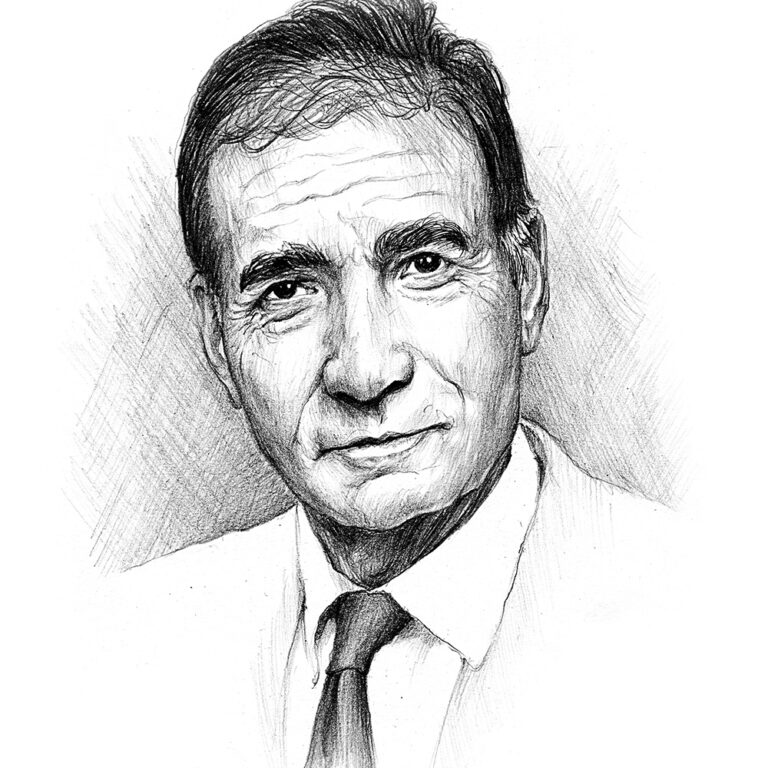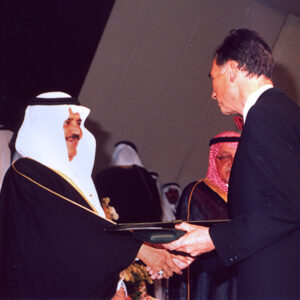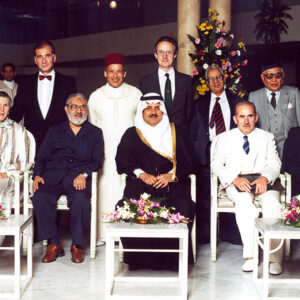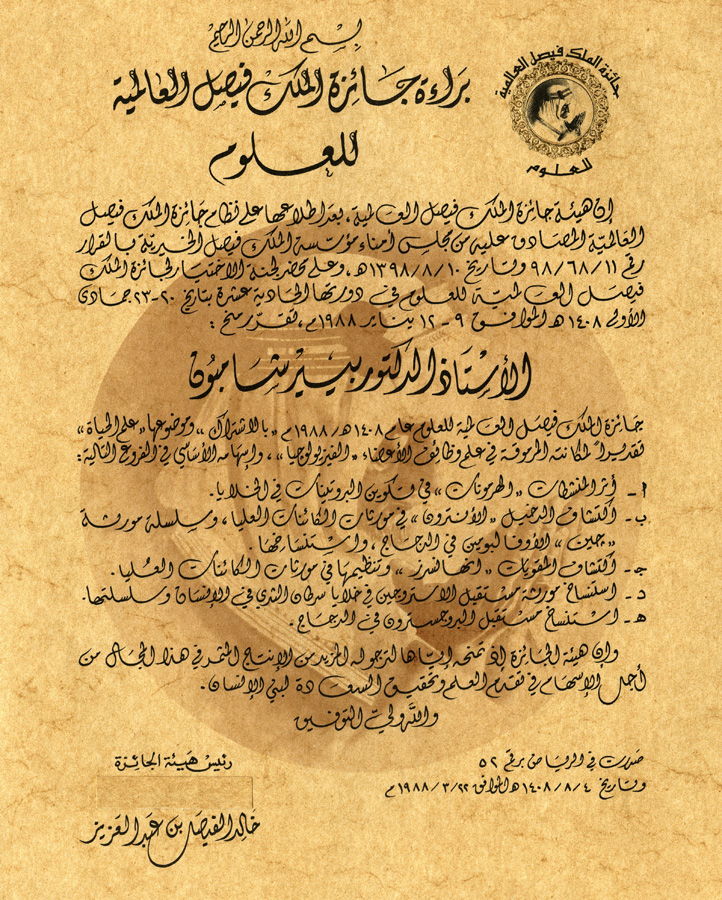

Professor Pierre Chambon
King Faisal Prize in Science 1988 Laureate
Topic: "Biology "
The excitement of being a molecular geneticist is the exploration of life and the discovery of its operation

Pierre Chambon obtained his M.D. in 1958 and began his career as a researcher, then as an associate professor at the Institute of Biology Sciences at Strasbourg Medical School. He became the Director of the Laboratory of Molecular Genetics of Eukaryotes (LGME) in 1977. He is currently a Professor of Biochemistry at the Institute of Chemical Biology, Faculty of Medicine, Strasbourg.
Professor Chambon made the striking discovery that eukaryotic cells are split in their amino acid coding sequence. This finding had markedly influenced current views on the structure, function and evolution of living organisms. Another major breakthrough was his discovery of transcription enhancers. This proved to be an essential component of the control of gene expression in eukaryotic cells. Chambon’s research was crucial to the advancement of molecular genetics and earned him several prestigious prizes and honorary fellowships and memberships of major scientific academies and organizations in Europe and the USA, as well as a long list of invited lectureships and visiting professorships. He published more than 250 scientific papers and reviews. He is ranked among the ten most cited researchers in molecular biology and genetics, and is considered by many as the father of the genetic revolution.
Professor Chambon earned many other prizes, and honors including an honorary doctorate degree from Liege University in Belgium. Professor Chambon is a Member of the French Académie des Sciences, the Royal Swedish Academy of Sciences, and a Foreign Associate of the National Academy of Sciences. He also served on a number of editorial boards, including those of Cell, Molecular Cell, and Genes and Development.
Professor Charbon’s work has thus profoundly influenced the advance of molecular medicine in ways which relate to the understanding of cancer and its possible treatment.
This biography was written in the year the prize was awarded.
- He authored nearly 900 publications.
- He held many positions including:
- Honorary Director of the Institute of Genetics and Cellular and Molecular Biology at Louis Pasteur University in 1994.
- Professor Emeritus at the Faculty of Medicine of the University of Strasbourg in 2002.
- Director of the Génopole Strasbourg Alsace-Lorraine and the Institut Clinique de la Souris in 2002.
- He received many awards and honors including:
- Sir Hans Krebs Medal of the Association of European Societies of Biochemistry in 1990.
- Louis-Jeantet Prize for Medicine in 1991.
- Robert A. Welch Prize in 1998.
- Louisa Gross Horwitz Prize twice in 1999 and 2018.
- Honorary Doctor of Philosophy from Sapporo Medical University in Japan in 1999.
- Honorary Doctorate from Lausanne University in Switzerland in 2001.
- March of Dimes Prize in Developmental Biology in 2003.
- Lasker Basic Medical Research Award in 2004.
- Gairdner Foundation International Award in 2010.



